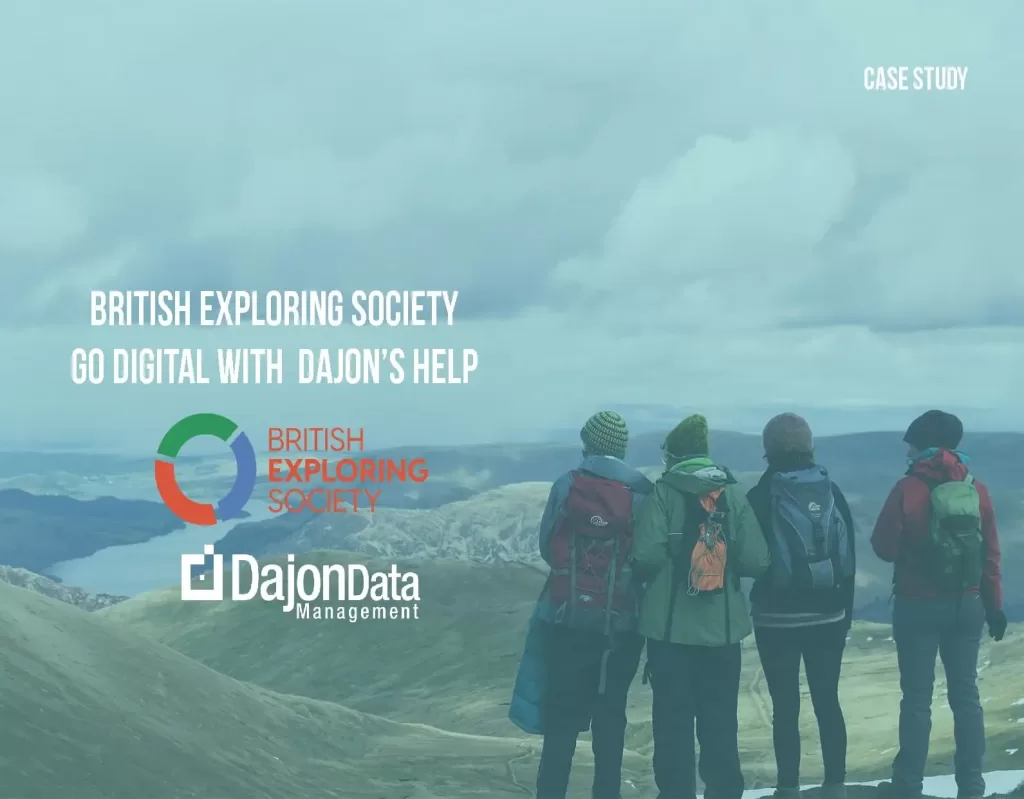British exploring society, founded in 1932 by Surgeon Commander George Murray Levick RN, is a youth development charity which provides young people with opportunities to develop their skills by exploring the most remote and wildest locations across the world.
All of these trips have a scientific basis and the youngsters involved do research while they are away to ensure an educational value.

Dajon digitise precious historical data for The British Exploring Society
Throughout their illustrious past, The British Exploring Society had collected eighty years’ worth of irreplaceable journals, photographs, slides, reports and other valuable items. As the bulky paperwork was taking up a significant amount of room at the BES headquarters, they approached Dajon for help. Dajon scanned in thousands of very old and fragile materials, in a wide variety of formats, enabling the society to protect the data and make it easily available for many generations to come.
We help companies turnaround their non-profitable ventures into something that benefits them. Our specialty lies in understanding what makes a company special and what makes it tick.
Because of all the research and recording involved, expedition members keep detailed logs day by day and photograph everything of interest that they see. They also write up reports of their discoveries once they return.
However, it is this very diligence that had created a problem. Eighty years’ worth of journals, photographs, slides, reports and other valuable items were taking up a significant amount of room at the British Exploring Society headquarters at the Royal Geographical Society in Kensington Gore, London.
In addition, keeping it in boxes meant it was very difficult to reach by members and researchers keen to extract data from almost a century of study material – having it boxed up and inaccessible was defeating the object of creating records in the first place.
Furthermore, there were concerns at the British Exploring Society over the future safety of the material. Had there been a fire, a flood or some other unforeseen incident, the valuable and historic research could have been lost forever. It was clear something had to be done.
The British Exploring Society approached Dajon Data Management to ask for a quote for scanning all of its documents, reports and photographs to enable them to be made available on the British Exploring Society website (www.BritishExploring.org). Out of all the document scanning companies approached, Dajon provided the one of the most innovative approaches and competitive quotes, and so we were awarded the contract.
Our task involved scanning many thousands of very old and fragile material in a wide variety of formats – from 35mm slides right up to A0 charts – to create digital copies and then reproducing them in a variety of sizes, qualities and formats for future viewing.
This was important, as the British Exploring Society foresees the records being used by everyone from school groups to government staff on devices including mobile phones and tablets in the future.
We also applied British Exploring Society watermarks and reference numbers to every image, primarily so they can easily be found in years to come, but also for data protection reasons – it means the pictures can’t be cut and pasted without attribution or permissions.
At the end of each day of scanning, everything we had scanned was uploaded to Dajon’s online Secure File Transfer Protocol (SFTP) server, where images could be checked by authorised British Exploring Society staff using password-controlled access.
Finally, once everything from 35mm slides to handwritten notes had been digitised, we re-filed everything back in its original position and gave the British Exploring Society their external hard drive featuring a complete master copy of the digitised material.
An index of scanned material made using a spreadsheet means that British Exploring Society staff and members can quickly and easily locate images that they are looking for in the future.
“Dajon were the most economical by two or three per cent, with the added advantage of being close to London. [They] also came in about one per cent cheaper than their estimate based on their survey of the job and their priced menu”
Justin Warick – Archivist, British Exploring Society